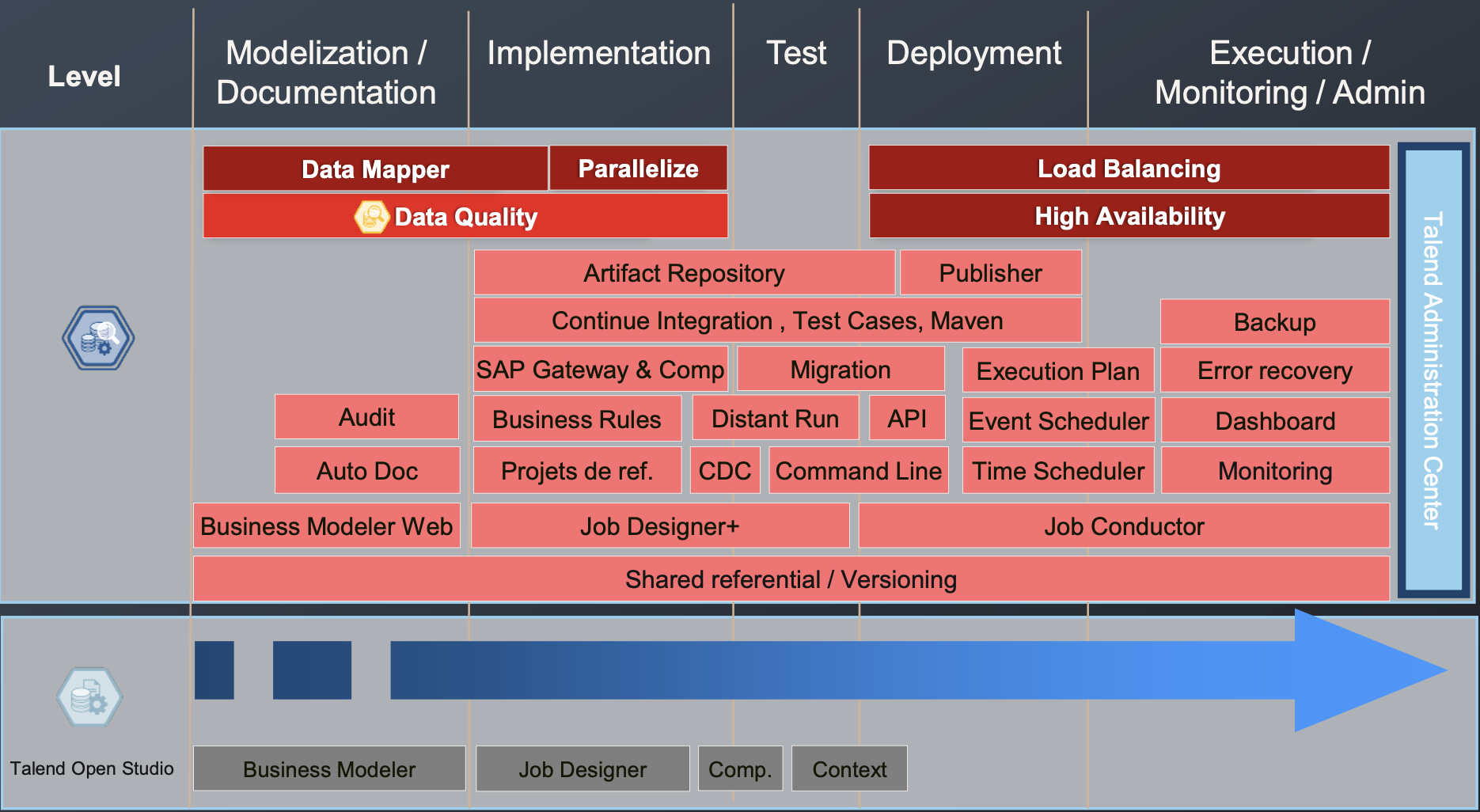What to know when making a decision?
Key differences in the functionality of free (open source) and paid (Talend Data Fabric) tools on the Talend platform.
The developer part of the Talend platform consists of three main modules:
Data Integration (DI) Enterprise service bus (ESB) Data Quality (DQ)
Modules are available without a license as three separate tools (separate programs: Open Studio DI, Open Studio ESB and Open Studio DQ) for one developer with a limited number of components compared to the paid version of Talend Data Fabric.
Comparison of Open Studio and the paid version of Talend Data Fabric:
Open Studio does not support the teamwork of developers – i.e team work on one project and resource sharing
Open Studio does not allow administration of the delivered solution, while Talend Data Fabric provides a central administration console with the ability to:
- suser reports management of performed tasks – timing of execution,
- logs and reports on processing, notifications about error states of processing central
- Logging and monitoring console with information on all service calls support of teamwork – versioning, creation of branches,
- main packages with subsequent possible deployment to TEST and PROD environment, use of created jobs in various projects (reusability)
Open Studio does not contain all components of the paid version, e.g.:
- there is no “match” component in the DQ functionality – which is the basic component for matching records
- There is no connection to the Data Stewardship console – a GUI for data stewards designed to solve problem data
Open Studio does not support high availability, load balancing and failover. Technical support (e.g. solving vulnerabilities) is only available for the paid version.

Overview of the functionality of the paid and unpaid versions of the Talend platform.
